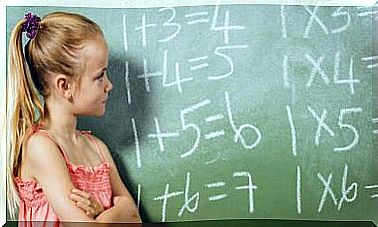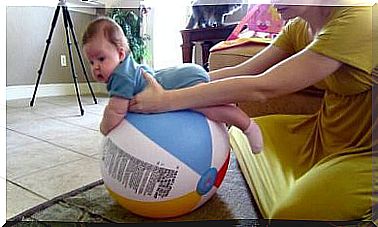Accepting Defeat: How To Teach A Child
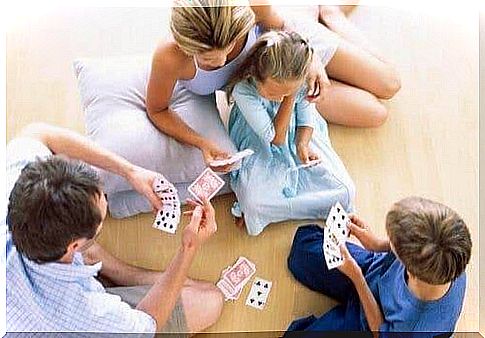
Knowing how to accept defeat is a fundamental lesson to be learned in life. For this reason, letting your children always win is not a good idea. The habit of always winning could have a negative impact on their future life. If you let your child win on any occasion, you will take away from him the opportunity to grow.
For children, accepting defeat is an opportunity for growth
It is understandable that parents have a tendency to make things easier for their children. In reality, this behavior is not totally bad. The important thing is that this protection mechanism does not become excessive overprotection. In this case, you would be doing nothing but damage. Making it easy can have negative consequences on a child’s personality.
We have all likely had or continue to have protective behavior towards our children. The truth is, it’s not the best solution. During a game, many of you may have pretended to lose to prevent the children from getting angry or sad. As we mentioned earlier, in this way you do not teach children to accept defeat and deprive them of an important growth opportunity.
When they win, children – as well as adults – feel a pleasant sense of empowerment . But this is not always the best condition because, after all, we are depriving them of the possibility of developing the psychological strategies necessary to face and accept the defeat and failure that can happen in real life.
Basically, we are depriving them of the experience of defeat. In this way they will not understand that losing is not that serious and is an aspect of life for each of us.
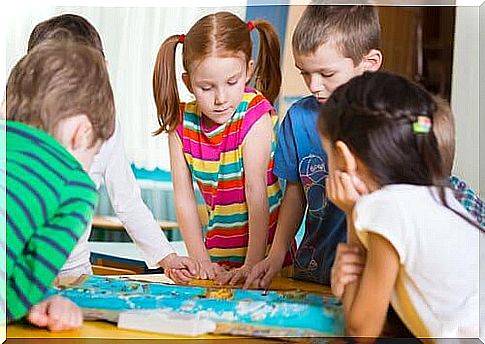
An undeserved victory has negative effects on children
A study carried out by the University of Virginia of children between the ages of four and five shows us that children who win undeservedly end up having a disproportionate perception of their abilities that does not conform to reality. This, in the future, can lead to negative psychological consequences.
It seems that children who feel they are successful in a task – when in reality they are not – are less aware of the information that allows them to improve their skills and, consequently, to learn better from the world around them. They believe that such information is not that important, so there will always be someone who will facilitate their way.
If they see that someone is always solving problems for them, they will not look for ways to solve them themselves and they will not develop new skills.
The positive side of a defeat
There are several reasons why it is important for children to learn to accept defeat:
- On the one hand, it serves to protect and strengthen their self-esteem. If the child learns to lose and accept defeat, he will not see it as a personal failure or a lack of skill. He will consider the fact that losing is part of life and that one cannot always win. By not affecting his self-esteem, the child will eventually strengthen it.
- Letting the child lose, believe it or not, will improve his social skills. It will allow him to know how to participate and play with sportsmanship. Therefore, the defeat will not be a cause for anger for him.
- Also, this will help the child focus on the activities he does rather than the end result. He will learn that winning or losing is not all that important. For this reason, it will focus more on the intrinsic processes of various activities.
- It is essential that everyone understands the value of effort so that they understand that success comes from effort and not luck.
Accepting defeat: the importance of developing tolerance for frustration
All of this will help your child develop a greater tolerance for frustration. Your child will not be frustrated if he sees obstacles as challenges. This will allow him to face adversity better without breaking down and to become stronger.
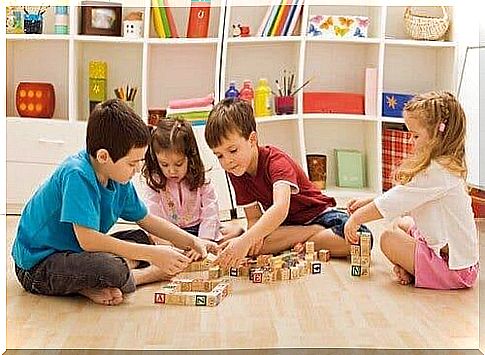
Children who learn to accept defeat are also able to collaborate with others and help them when needed. They know that winning is not the only thing that matters. Therefore, they will not be too competitive or selfish. This attitude will allow them to avoid possible problems in the future.
Learning to lose will allow your child to have a more realistic image of themselves. In this way, he will be more aware of his abilities, skills, potential and limitations and will be able to face future challenges in the best way.
The best thing is that, from the age of four, it is the parents themselves who speak openly about concepts such as victory or defeat. Also, when the child is small, fairy tales and tales can help parents introduce these concepts.
You can turn a loss into a victory more easily than you think. To do this, you just have to accept the child’s feelings and highlight the positive aspects. For example, tell him that even if he lost, he shouldn’t be sorry because he enjoyed playing the game.
Conclusions
If you teach your child that losing is not a bad thing, but an opportunity to learn and try again, you will provide them with a key to understanding that they will need throughout their life. This way you will give him the opportunities to grow he needs.
